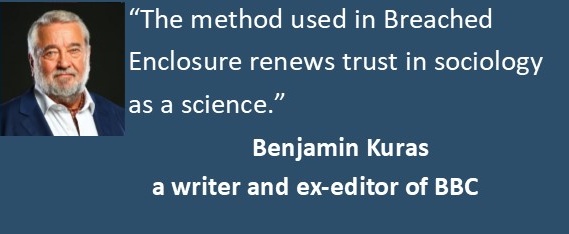The Czech government has based its aid strategy on “targeted assistance”, which means that aid should only be given to those who can prove that they are genuinely in need. The opposition, on the other hand, believes that the situation is so serious that blanket aid (in the form of tax breaks or price caps, for example) would be more effective. What impact can it have on society if an applicant for support has to ‘strip naked’ in front of officials, fill in a multitude of forms and then be subjected to the arbitrary will of the official assessing his or her case?
To understand this issue, it is important to understand the difference between the lower class and the poor (sometimes referred to as the ‘underclass’). The lower class are people who are not well off but who retain their morals and dignity. The underclass are people who have already lost their dignity and are left with nothing more than groveling before state officials. Not in front of some power elite, but in front of the lowest officials who can bully you and – as you say – strip you naked. Often these officials don’t even have a choice because their superiors pressure them to refuse benefits.
So the government has caused huge price increases and is offering people to give up basic human dignity. Then – maybe – it will help them. This is incredibly disgusting. And it is incredibly stupid that some ordinary people support it, because it makes them feel noble to sneer at their less fortunate fellow citizens and deny them basic human solidarity.
So how should the government proceed?
First of all, it should follow the principle: let the guilty pay. It should approach the US Government with a clear message. You, the Americans, have started a war with Russia and have caused us enormous damage. We will therefore remain in the anti-Russian alliance only if you compensate us for this damage. America, pay up! If the Americans don’t want to clean up their own mess, why should we?
Energy affordability is starting to emerge as a major issue. Either because of cost or because it simply may not be available. Experts are talking quite seriously about next winter being a crisis winter. How much of a big social problem could it be if heating gas, electricity, or fuel is cut?
It won’t be winter at the Cabinet Office, it won’t be winter at the Open Society Foundation offices, and it won’t be winter at the local headquarters of Microsoft, Honeywell and IBM. The others don’t matter.
Another commodity of concern to many is food. We have almost forgotten that we can feel their scarcity or unavailability. Yet hunger storms have always been the most feared rebellions in history. Could food shortages bring protests of a qualitatively different level than we have seen so far?
I don’t think hunger storms are feared rebellions. There will be more people whose wages can barely pay for housing and basic food. There will be more people going hungry. But there will be no revolution.
When all the problems we have been talking about come together – can we see protests on the level of burning streets, as happened in southern European countries during the financial crisis, or is the temperament here different?
It certainly doesn’t fit the Czech tradition. We haven’t had anything like this here since the peasant riots at the end of the 17th century. If there is anyone with the potential to pull off such stunts, it is people with foreign experience, mostly spoiled sons and daughters of the rich.
How can this potential public outrage change Czech politics? Can it be served by the current political representation, or is there potential for something completely new?
Every political project first and foremost defends someone’s interests. And at the moment, there is no group or class that is interested in change and that is so rich and powerful that it can support a political project.
And someone from abroad?
For Russia and China, the Czech Republic is completely irrelevant. Despite what the conspiracy theorists on public television and in the government office shout, there is not the slightest indication that the Russians or the Chinese want to pay attention or even money to anything in the Czech Republic. Then there are the Muslim states, but they promote their interests through Brussels and Washington.


